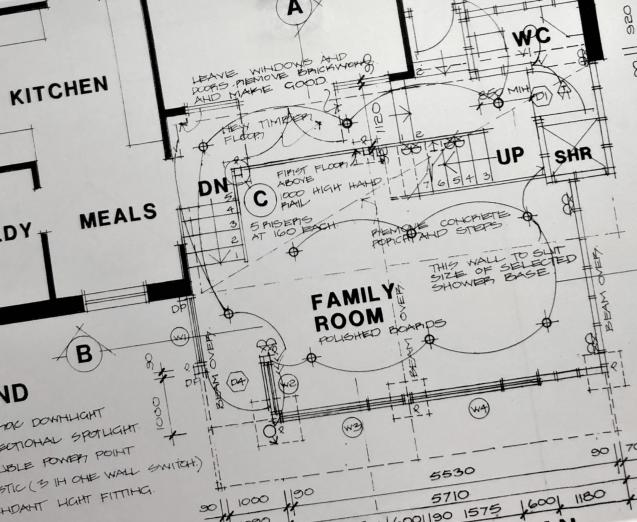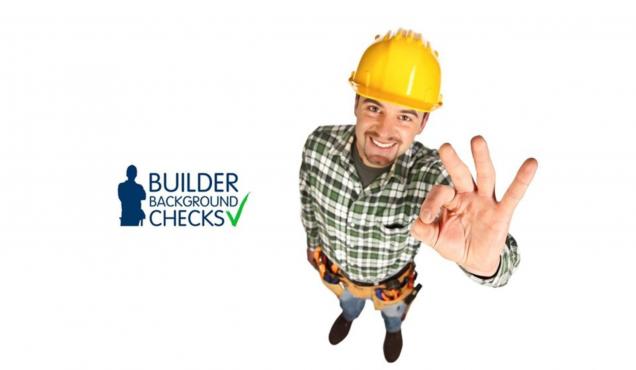
Contracts, Lawyers & When Things Go Wrong (Victoria Only)
Forewarned is Forearmed: The reality is there are several thousand new formal building disputes recorded in Victoria each year. They slowly churn through a range of courts and dispute resolution processes. It’s a stressful, slow and expensive experience.
It’s the reason that, of those that undertake a major building project in their lives, the majority only do it once. There's no record of 'informal building disputes' in Victoria but the number is sure to be significant. This daunting volume of distressed consumers underlines the importance of doing the appropriate due diligence on your prospective builder in the first instance.
And be aware that when a major dispute occurs work often stops on your building site. The owner suffers the delay, the builder moves onto the next job.
Amazingly most people don’t do much more than ask friends for a referral, look at a website then sign the contract. And the contract is often for hundreds of thousands of dollars. It's clearly not enough.
Disreputable builders usually leave a trail of unhappy consumers - our reports identify problem builders.
A Word on Contracts
First things first, we're not lawyers. What you’re about to read does not constitute legal advice. The people qualified to advise and who are absolutely essential to your building team is a specialist Construction Lawyer. To find yours go to Law Institute of Victoria.
The opinions expressed here have been formed over twelve years when I was CEO of a building industry association assisting tens of thousands of consumers undergoing the completion of a domestic building contract. A minority experienced extremely significant angst that led to delays and cost blow-outs. I believe much of this pain can be avoided if the consumer proceeds with caution and seeks independent advice before signing a contract.
Importantly, all contracts - including association-produced contracts - require legal review before you sign. The standardised contracts produced by industry associations (including HIA & MBAV) are fair and reasonable. However, in my experience, the majority of people experiencing major problems have used these industry contracts.
Things still go wrong, usually because detail in the contract is unclear, lacking in precise detail or is unfairly weighted in favour of the builder.
My observation is that most people involved in protracted disputes have not understood the contract when they signed it.
Most Building Disputes Fall Under Three Headings
Finally, though you’ll periodically hear politicians spruiking the merits of ‘plain language contracts’ the fact is Victorian domestic building contracts are full of jargon. Use a lawyer to review it. And then have the lawyer explain it to you. Good builders protect themselves with well documented quotes and contracts, read our how to find the right builder articles.
Who to Turn to if it's Gone Pear-Shaped
If things do go awry, unfortunately there’s no government appointed policeman to step in and settle the dispute. Generally speaking it’s up to you to navigate the formal processes and resolve dispute via the -
Steps Toward Resolving a Dispute
Clearly the quickest and cheapest way to resolve a dispute is to do it yourself. Swallow your pride, be pragmatic, compromise - try to avoid involving certain delays and cost where third-parties are involved. If this is unsuccessful, consider inviting a professional ally to participate. You could engage a surveyor, an independent building consultant, another builder or an industry association to participate in the discussion.
Consumer Affairs Victoria have produced this useful checklist -
NB: The legal aspects of construction in Victoria change frequently - the above is general advice only and may not be current at the time of your reading.
By Brendan Watkins, Builder Background Checks.
Further Reading
Brendan Watkins, Director - Builder Background Checks P/L
Brendan was CEO of the Swimming Pool & Spa Association of Victoria (SPASA) for 12 years and is the inaugural association building industry 'Hall of Fame' inductee. SPASA is the sole industry peak body for registered builders. As well as serving as CEO of the national industry association for a time Brendan sat on several government building, training and regulatory committees. He has advocated to Ministerial offices and is considered highly knowledgeable and well connected within the construction industry. Brendan presents regularly at the HIA Home Show. Builder Background Checks is augmented by access to a number of specialised industry experts including construction industry lawyers, mercantile agencies, building surveyors, architects, engineers and designers.
Disclaimer: Builder Background Checks P/L (BBC) provides advice of a general nature only. BBC does not provide formal legal, regulation or building advice. The advice published has been prepared without taking into account your specific objectives or needs. Before acting on any commentary, articles or reports provided by BBC you should consider their appropriateness to your specific objectives, financial situation and requirements. BBC shall not be liable to any party as a result of any information, services, or resources made available as part of its reports or articles contained on this website.
It’s the reason that, of those that undertake a major building project in their lives, the majority only do it once. There's no record of 'informal building disputes' in Victoria but the number is sure to be significant. This daunting volume of distressed consumers underlines the importance of doing the appropriate due diligence on your prospective builder in the first instance.
And be aware that when a major dispute occurs work often stops on your building site. The owner suffers the delay, the builder moves onto the next job.
Amazingly most people don’t do much more than ask friends for a referral, look at a website then sign the contract. And the contract is often for hundreds of thousands of dollars. It's clearly not enough.
Disreputable builders usually leave a trail of unhappy consumers - our reports identify problem builders.
A Word on Contracts
First things first, we're not lawyers. What you’re about to read does not constitute legal advice. The people qualified to advise and who are absolutely essential to your building team is a specialist Construction Lawyer. To find yours go to Law Institute of Victoria.
The opinions expressed here have been formed over twelve years when I was CEO of a building industry association assisting tens of thousands of consumers undergoing the completion of a domestic building contract. A minority experienced extremely significant angst that led to delays and cost blow-outs. I believe much of this pain can be avoided if the consumer proceeds with caution and seeks independent advice before signing a contract.
Importantly, all contracts - including association-produced contracts - require legal review before you sign. The standardised contracts produced by industry associations (including HIA & MBAV) are fair and reasonable. However, in my experience, the majority of people experiencing major problems have used these industry contracts.
Things still go wrong, usually because detail in the contract is unclear, lacking in precise detail or is unfairly weighted in favour of the builder.
My observation is that most people involved in protracted disputes have not understood the contract when they signed it.
Most Building Disputes Fall Under Three Headings
- Disputes relating to unanticipated costs (variations) that consumers assume the builder should have known about.
- Unrealistic expectations communicated to consumers around commencement date, completion date, materials to be used, quality of workmanship, disruption during construction, damage to property, weather delays, etc.
- Poorly communicated expectation. There's enormous room for dispute where detail of the finish or provision of fixtures and fittings is vague or not addressed at all in the initial tender, quote or contract. Every detail must be in writing. I’ve witnessed people going to court over the colour of a tile (albeit a great many tiles). Why? Because it was communicated verbally and not verified in writing.
Finally, though you’ll periodically hear politicians spruiking the merits of ‘plain language contracts’ the fact is Victorian domestic building contracts are full of jargon. Use a lawyer to review it. And then have the lawyer explain it to you. Good builders protect themselves with well documented quotes and contracts, read our how to find the right builder articles.
Who to Turn to if it's Gone Pear-Shaped
If things do go awry, unfortunately there’s no government appointed policeman to step in and settle the dispute. Generally speaking it’s up to you to navigate the formal processes and resolve dispute via the -
- Domestic Building Dispute Resolution Victoria (DBDRV)
- Victorian Civil Administrative Tribunal (VCAT)
- Involve a range of Government Agencies
- Engage an independent building dispute consultant
- Litigate through the Court system
Steps Toward Resolving a Dispute
Clearly the quickest and cheapest way to resolve a dispute is to do it yourself. Swallow your pride, be pragmatic, compromise - try to avoid involving certain delays and cost where third-parties are involved. If this is unsuccessful, consider inviting a professional ally to participate. You could engage a surveyor, an independent building consultant, another builder or an industry association to participate in the discussion.
Consumer Affairs Victoria have produced this useful checklist -
- Discuss the issue with your builder
- Keep copies of all relevant documents (for example, contracts, invoices and written communications).
- Put your concerns in writing. If you cannot resolve the problem by speaking to the builder directly, send them a letter or email, formally outlining the issue and requesting a response.
- By putting your concerns in writing, you will have a record of your discussions. This can be shown to a third party if you choose to take the dispute further later on, and demonstrates that you made a reasonable attempt to resolve the problem yourself.
- You should use registered mail if you are sending your correspondence by post.
- If you need further advice about resolving the issue, you can contact the CAV Building Information Line on 1300 55 75 59.
- Apply to Domestic Building Dispute Resolution Victoria (DBDRV). If you do not receive a response from the client within a reasonable timeframe, and are unable to resolve the dispute yourself, you can lodge an online application for dispute resolution through Domestic Building Dispute Resolution Victoria (DBDRV). DBDRV is equally accessible to builders and home owners.
- DBDRV provides building disputes resolution without the cost and time often associated with courts and tribunals, and has the power to issue dispute resolution orders to resolve disputes that are not completely resolved by agreement.
NB: The legal aspects of construction in Victoria change frequently - the above is general advice only and may not be current at the time of your reading.
By Brendan Watkins, Builder Background Checks.
Further Reading
- Help! I Want to Cancel My Building Contract!
- What's a Pre-Construction Building Contract?
- What to do When Builders Damage Your House During Renovations
- What Work Requires a Building Contract?
- When a Builder Goes Bust
Brendan Watkins, Director - Builder Background Checks P/L
Brendan was CEO of the Swimming Pool & Spa Association of Victoria (SPASA) for 12 years and is the inaugural association building industry 'Hall of Fame' inductee. SPASA is the sole industry peak body for registered builders. As well as serving as CEO of the national industry association for a time Brendan sat on several government building, training and regulatory committees. He has advocated to Ministerial offices and is considered highly knowledgeable and well connected within the construction industry. Brendan presents regularly at the HIA Home Show. Builder Background Checks is augmented by access to a number of specialised industry experts including construction industry lawyers, mercantile agencies, building surveyors, architects, engineers and designers.
Disclaimer: Builder Background Checks P/L (BBC) provides advice of a general nature only. BBC does not provide formal legal, regulation or building advice. The advice published has been prepared without taking into account your specific objectives or needs. Before acting on any commentary, articles or reports provided by BBC you should consider their appropriateness to your specific objectives, financial situation and requirements. BBC shall not be liable to any party as a result of any information, services, or resources made available as part of its reports or articles contained on this website.



